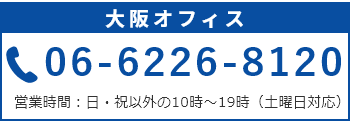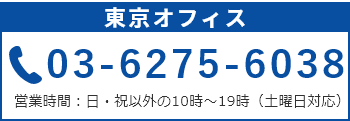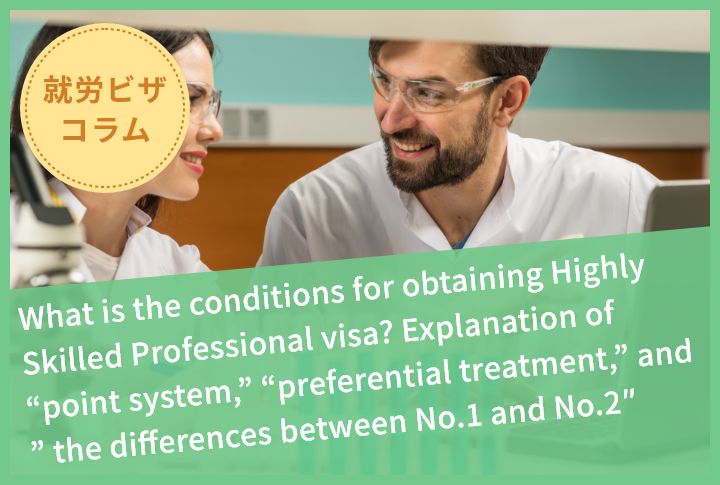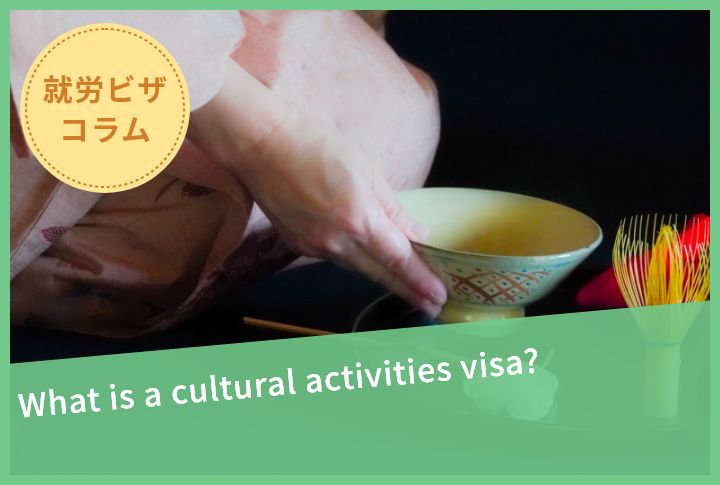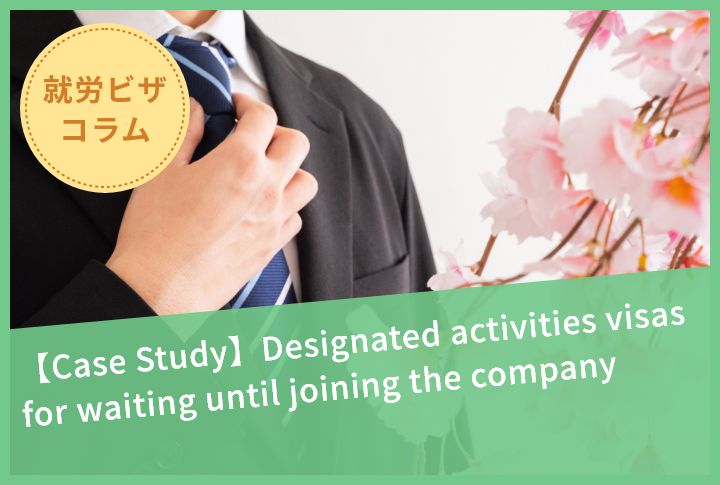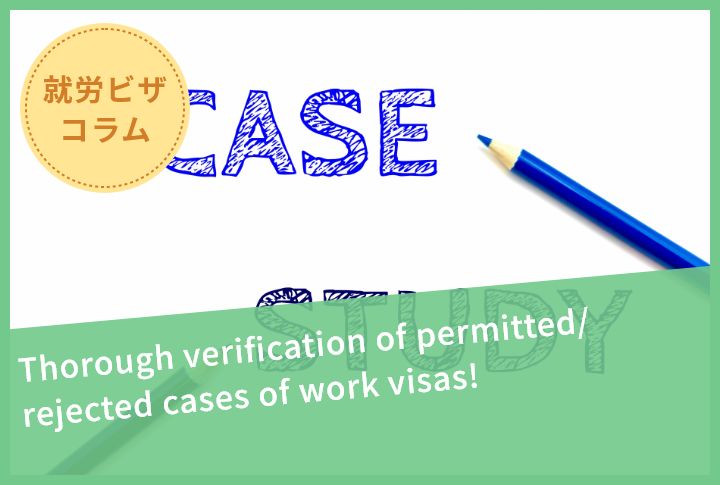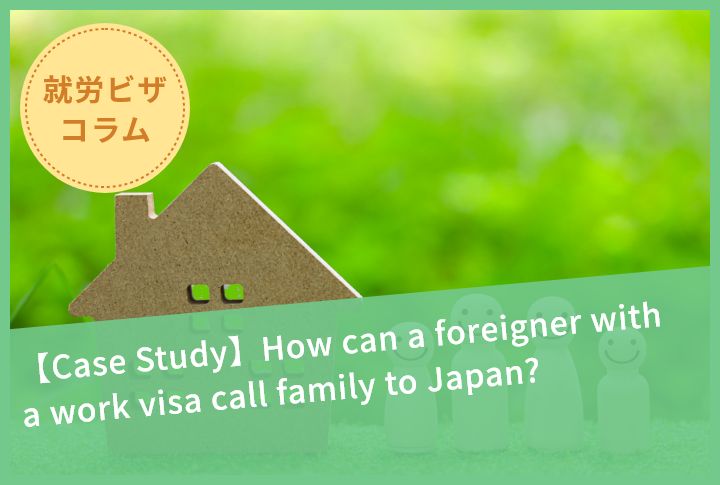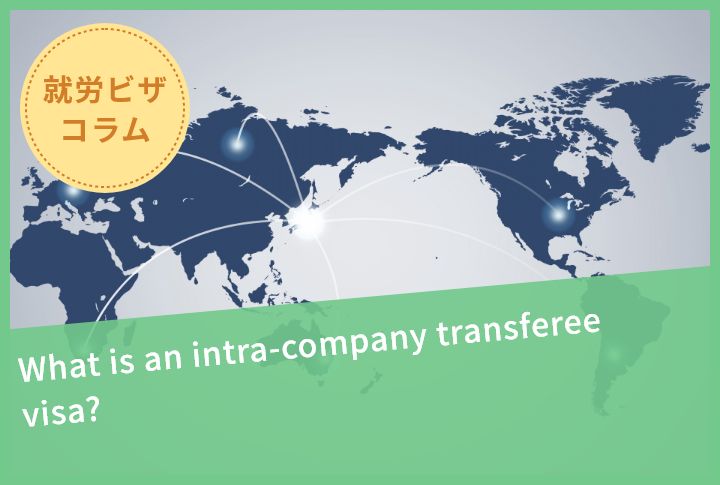【Case study】Engineer/specialist in humanities/international services visa, which is the most typical work visa
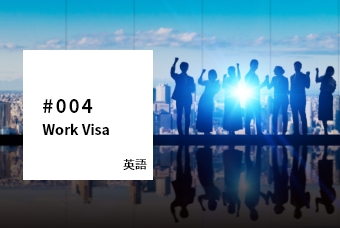
We received the following consultation from human resources personnel of a company:
“We would like to hire a Chinese person next spring. We are planning to give him an on-site training in manufacturing section together with other new Japanese employees, and let him work at the assigned workplace thereafter. Can he get a work visa?”
An increasing number of companies wish to hire foreigners under current situation of workforce shortage. On the other hand, various problems come up when hiring foreigners, which are not seen when hiring Japanese: What kind of foreigners should we hire? May the training schedule be the same as that of Japanese employees? What kind of works can we assign to them? What are the requirements for obtaining a work visa? And so on.
We would like to explain some particularly important points regarding the status of residence of “engineer/specialist in humanities/international services,” which is a typical work visa.
Index
1. What are the requirements for engineer/specialist in humanities/international services visas?
First, let’s check the activities covered by engineer/specialist in humanities/international services visas.
The Immigration Act stipulates the following activities:
The right-hand column corresponding to “engineer/specialist in humanities/international services” in Appended Table I (2) of the Immigration Act
“Activities to engage in services which require specialized skills or knowledge pertinent to the field of physical science, engineering or other natural science fields or to the field of jurisprudence, economics, sociology or other humanities fields or to engage in services which require specific ways of thinking or sensitivity acquired through experience with a foreign culture (except for the activities listed in the right-hand column of the ‘Professor’, ‘Artist’ and ‘Journalist’ sections in Table (1), and the activities listed in the right-hand column of the ‘Business Manager’ to ‘Instructor’ sections, ‘Intra-company Transferee’ and ‘Entertainer’ sections in this Table) based on a contract entered into with a public or private organization in Japan.”
In order to obtain an engineer/specialist in humanities/international services visa, it is required that activities to be conducted must fall under any of the activities listed in the right-hand column corresponding to “Engineer/Specialist in Humanities/International Services” in Appended Table I (2) of the Immigration Act (eligibility for status of residence), and conform to the conditions provided for in the ordinance by the Ministry of Justice (the landing permission criteria), which was decided in light of Japanese industry, public welfare, etc.
Thus, in order to obtain stated visa, it is necessary to meet 1) eligibility for status of residence and 2) conformity with landing permission criteria.
(1) Eligibility for status of residence
Eligibility for status of residence of engineer/specialist in humanities/international services is categorized as follows:
I 【The field of physical science, engineering or other natural science fields】(Engineer category)
> Services pertinent to science field.
II 【the field of jurisprudence, economics, sociology or other humanities fields】(Humanities category)
> Services pertinent to humanities field.
III 【Services which require specific ways of thinking or sensitivity acquired through experience with a foreign culture】(International services category)
>Interpretation/translation services, language instruction, international transaction services etc.
(2) Landing permission criteria
Landing permission criteria can be categorized as follows:
<I. Engineer category and II. Humanities category>
Regarding I and II, applicant must meet the following a) OR b):
a) Educational background requirement
The applicant has graduated from university, having majored in a subject relating to the relevant skills or knowledge, or has acquired an education equivalent thereto; or the applicant has completed a specialized course of study at a vocational school in Japan, majoring in a subject relating to the relevant skills or knowledge.
b) Practical experience requirement
The applicant has at least 10 years’ practical experience.
<III. International services category>
As for category III, applicant must meet a) AND b):
a) Service requirement
The applicant engages in translation, interpretation, language instruction, public relations, overseas transactions, fashion or interior design, product development, or other similar services.
b) Practical background requirement
The applicant has at least 3 years’ experience in the relevant services.
* This does not apply if the applicant who has graduated from university is to engage in translation, interpretation, or language instruction.
The applicant of engineer/specialist in humanities/international services visa must confirm that the planned activities fall under any of such 3 categories (eligibility for status of residence), and that he/she has educational or practical background etc. which vary depending on each category.
2. What documents are required when applying for an engineer/specialist in humanities/international services visa?
Documents required when applying for an engineer/specialist in humanities/international services visa are listed on website of the Ministry of Justice. They are divided into 4 categories according to the size of the organization to which applicants belong, and the documents to be submitted when applying for the visa are different depending on each category.
Here are some examples of documents which are not listed on the website of the Ministry of Justice but often requested by immigration offices.
a) A document which explains services to be conducted by the applicant
In this document, the applicant clarifies the service contents that he/she intends to engage in and explain that he/she is eligible for the status of residence. The application form of engineer/specialist in humanities/international services visa has a part where applicant must make a mark on the service which he/she will engage in, but if there is no precise description of such service, we recommend explaining it in a separate sheet for clarification.
b) Materials which clarify business activities
For example, in case that you are applying for a visa to hire a Vietnamese person to have him/her work as a contact person for trading with Vietnamese companies, you may be requested to submit a proof that you are actually trading with Vietnamese companies. Such proof is often requested in the case of new businesses. So, if you would like to smoothly proceed to the examination, it is effective to submit documents showing the fact of trading with Vietnamese companies in advance.
After all, you just need to prove the eligibility for the status of residence and the conformity with landing permission criteria. Nevertheless, service contents, educational background, professional background, business of the organization where the applicant works differ depending on each applicant. So, these factors must be taken into consideration when preparing documents to be submitted to the immigration offices. Please understand that the documents listed on the website of the Ministry of Justice are the least documents.
3. Period of stay under an engineer/specialist in humanities/international services visa
The status of residence of engineer/specialist in humanities/international services has 4 types of period of stay: 6 months, 1 year, 3 years, and 5 years.
It is often a case that 1-year period of stay is granted at the beginning of employment. A long-term period of stay of 3 or 5 years may be granted in cases of companies with relatively high stability of employment, such as listed companies, small and medium-sized companies of similar scale, and companies which have already employed many foreigners.
4. Points to note when changing jobs
Foreigners with an engineer/specialist in humanities/international services visa should be careful when changing their organization to change jobs.
First is the notification to the relevant immigration office.
When changing jobs, foreigners are obliged to notify the relevant immigration office of the facts of leaving from former organization and entering into a contract with new organization within 14 days.
In addition, when changing jobs, there are some points to be careful on the side of the newly hiring organization. If the foreigner has the status of residence of engineer/specialist in humanities/international services, it is necessary to examine whether the services at the new job fall under activities permitted by the status of residence.
Moreover, it is necessary to examine the conformity with the landing permission criteria. In particular, for foreigners who have graduated from a vocational school, the relevancy between the content of study at the vocational school and the content of work is strictly required when applying for permission to extend the period of stay. Please make sure to check not only the eligibility for status of residence but also the conformity with the landing permission criteria.
When changing jobs, please make sure to check the notification, eligibility for status of residence, and conformity with the landing permission criteria.
5. The conclusion of the case example
Let’s take a look at the abovementioned case.
Through the hearing from the human resources personnel, we found that the Chinese candidate has graduated from a university in China (majored in marketing). Our client wanted him to engage in the research on the Chinese market and development of new business partners after 3-month training.
In addition to the regular documents required by the Immigration Service Agency, to the relevant immigration office, we submitted the documents clarifying the purpose and schedule of the 3-month training and showing that the services to be conducted by the applicant correspond to the humanities category (II), and that his educational background conforms with the landing permission criteria.
As a result, we obtained a permission from the immigration office.
6. Summary
In this article, we went through the status of residence of engineer/specialist in humanities/international services.
In order to hire a foreigner and obtain a work visa, it is necessary to check a) eligibility for status of residence and b) the landing permission criteria. It is not easy to determine whether a foreigner can obtain a work visa or not, but making the right decision with the correct knowledge is the first step for hiring a foreigner.
We hope that this article is helpful for an appropriate employment of foreigners.



